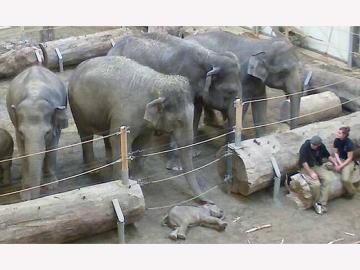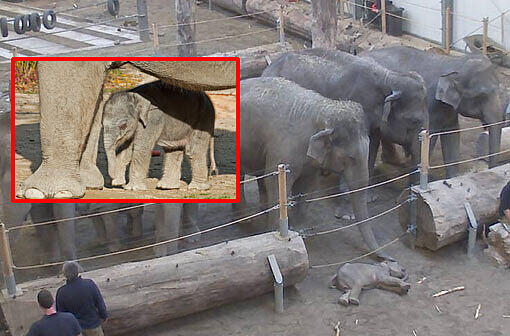“Twenty-Four Hours of Pain: Branson’s Endless Battle for Comfort”.2290
Branson’s Battle for Relief 🧡
(10.07.25 update – over 1000 words, line break after each sentence)
The past twenty-four hours have been some of the hardest yet.
Every breath, every heartbeat feels like another test of endurance.

Branson’s body is utterly exhausted — worn down from months of fighting, procedures, infections, and relentless pain.
He’s been battling nonstop, without a single moment of true rest.

This morning began with tears and trembling hands.
The nausea had grown so unbearable through the night that the doctors decided an NG tube had to be placed.

It wasn’t the first time.
But that doesn’t make it any easier.

The moment the tube touched his nose, Branson flinched.
His tiny hands tried to push it away.

The nurses spoke softly, his parents held his arms, whispering that it would help, that it was only for a little while.
He cried quietly — the kind of cry that no child should ever know — and when it was finally in place, he was pale and shaking.

A few hours later, he pulled it out himself.No one could blame him.
After all, how much more can one body tolerate?
But that meant enduring the agony of having it replaced all over again.

It’s brutal to watch, beyond words, beyond tears.
The kind of heartbreak that leaves a parent feeling helpless — wanting to take every bit of pain and carry it themselves if only it would give their child relief.

Alongside the tube placement, another procedure had to be done to help his body manage the effects of the BK virus — an infection that has tormented him for weeks.
It causes pain so deep it makes even the strongest child cry out in ways no parent should ever hear.

Branson has been through so much already: transplants, chemo, infections, hospital rooms that have become both battlefield and prison.
And still, somehow, he keeps fighting.

Nichole and Donald stand at his bedside, praying without pause.
They whisper words of hope while monitors hum softly in the background — steady, mechanical reminders of the fragile balance between life and suffering.

They have learned to read every number, every beep, every shift in his breathing.
They’ve learned to measure their days not by time, but by lab results, blood counts, and moments of peace between waves of pain.

They’re waiting now — waiting for the CNS results for adenovirus.
This one test feels like a line drawn between fear and hope.
Every hour drags on like a lifetime, every doctor who walks into the room carries the weight of an answer that could change everything.

So they pray.
Not once, not twice — but constantly.
Every heartbeat becomes a prayer: “Please let it be negative. Please let him be safe.”

And in the middle of it all, there is still one bright light.
His CNS results for leukemia remain 0%.
Zero.
Still in remission. 🙌🏼
Those words mean everything — the fragile hope that after all this suffering, his body is still holding on to the victory he fought so hard for.

His latest counts bring a flicker of cautious optimism: WBC at 8,000, neutrophils at 7,000, and lymphocytes at 200.
Small numbers, maybe, to anyone outside this world.

But to them, these numbers are like constellations of hope — tiny lights guiding them through the darkness.
Each rise, each improvement, means that somewhere deep inside, his body is still fighting, still believing in survival.

Nichole keeps a notebook beside his bed — pages filled with test results, medications, prayer lists, and little notes like
Those small victories are everything.
They are the breaths of life between storms.

But the truth is — they are exhausted.
Every time they think he’s turning a corner, something else hits.
And yet, they hold on.

Because love doesn’t quit.
Because a parent’s hope is stronger than despair.

They’ve asked again for prayers — not as a formality, but as a lifeline.
They feel those prayers.
They feel the love coming in from across the world, from strangers and friends alike.

In messages, in candles lit, in whispered prayers from hospital corridors to quiet bedrooms miles away.
That energy, that faith, has carried them through every sleepless night.

Tonight, as Branson lies resting — his small chest rising and falling under the soft glow of the monitors — his parents hold his hands and pray aloud:
“For healing.
For comfort.
For relief.”

Their specific prayers have become a rhythm, a map of everything their hearts long for:
🧡 For the CNS adenovirus results to come back clear and negative.
🧡 For Branson’s body to stabilize and find relief from all the side effects.
🧡 For the nausea and vomiting to stop and for his stomach to settle.
🧡 For healing and comfort from the pain caused by the BK virus.
🧡 For strength to keep enduring these incredibly hard days.
🧡 For a miraculous breakthrough and signs of improvement soon.
🧡 For peace, rest, and protection over Branson’s mind and body.
🧡 For wisdom and discernment for his medical team.
🧡 For supernatural comfort and endurance for Nichole and Donald as they advocate and care for him.
🧡 And for continued remission — complete, lasting, unwavering.

Every prayer whispered is another candle lit against the darkness.
Every message of support is another thread holding this family together.
And though these days are cruel and heavy, they still choose faith over fear.

Because somewhere deep down, they believe a breakthrough is coming.
They believe that relief will come — maybe not all at once, but slowly, gently, like the dawn breaking after the longest night.
They believe that one day soon, Branson will wake without pain.

That he’ll sit up, smile again, maybe even ask for his favorite snack.
That the tubes and wires and procedures will fade into memory, replaced by sunlight, laughter, and life beyond hospital walls.

Until then, they keep holding on — to each other, to faith, and to the unshakable love that has carried them this far.
They know the road is long.

They know the fight isn’t over.
But they also know that miracles don’t always come suddenly — sometimes they come through endurance, through love that refuses to give up.

So tonight, as another long day fades into the quiet hum of machines, they sit together and whisper their nightly promise:
“We won’t stop fighting.
We won’t stop believing.
We won’t stop praying.”



And somewhere in that small hospital room, between the tears and the steady rhythm of his heart monitor, hope still burns — faint but unbroken.
Because Branson deserves relief.
He deserves to feel better.
He deserves his miracle. 🧡
Silent Goodbye: Elephants Mourn Calf in Heartbreaking Vigil.1474

SILENT GOODBYE: Grieving Elephant Herd Holds Emotional Vigil for Fallen Calf – Viewers Worldwide in Tears!
They didn’t trumpet.
They didn’t move.
They simply stood, a solemn circle of grief, surrounding the lifeless body of a calf who had taken his final breath far too soon.
The silence of the herd was deafening. Not a single rumble echoed across the savanna. Not a single trunk lifted in playful greeting or in warning. Instead, every trunk lowered, gently reaching for the small body on the ground. With every touch, they said what words could never capture: goodbye.
For hours, the elephants remained together in this sacred vigil. They did not wander off in search of food or water. They did not allow the normal rhythm of life to resume. The only rhythm that mattered was the slow, heartbreaking movement of trunks brushing against the calf’s still form, as if willing him to rise again.

The Language of Elephants
Scientists and wildlife experts have long marveled at the emotional intelligence of elephants. Their complex social bonds, their memory, their loyalty—these traits place them among the most extraordinary creatures on Earth. But moments like this remind us that elephants are not only intelligent; they are profoundly emotional beings.
In human culture, we hold vigils, funerals, and ceremonies to honor the dead. For elephants, their ritual may be quieter, but no less powerful. The herd’s refusal to leave, their careful touches, and their unwavering presence are all signs of mourning. It is their way of bearing witness to a life that mattered, even if it was heartbreakingly short.

A Calf Gone Too Soon
The calf, barely old enough to have lived beyond the playful days of chasing birds and nestling close to his mother, collapsed unexpectedly. Whether from illness, injury, or circumstances beyond his control, the result was the same—his small body lay motionless, while his family gathered in sorrow.
Elephant calves are the heart of a herd. Every member, from mothers to aunts to older siblings, contributes to their care. They are cherished, nurtured, and protected at all costs. To lose one is not simply the loss of an individual—it is the breaking of a bond woven through the entire herd.
The mother, in particular, refused to step away. Again and again, she nudged her calf with her trunk, urging him to wake, to stand, to return to her side. Her sorrow was palpable, her stillness heavy with despair.

The Vigil
What unfolded over the next several hours was nothing short of extraordinary.
The herd encircled the calf, creating a living shield around him. One by one, they took turns touching his body, lingering as though imprinting the memory of his presence. They did not eat. They did not sleep. They remained united in their grief, their silence a testament to the depth of their love.
Some elephants stood slightly apart, their ears drooping, their eyes lowered. Others leaned close, their trunks intertwining with one another, finding comfort in shared sorrow. The scene was not chaotic, not filled with the loud trumpeting often associated with elephants. Instead, it was quiet—eerily quiet. A silence so deep that even the air seemed to tremble with emotion.
Wildlife observers who captured the moment reported being unable to hold back tears. “I’ve seen elephants in the wild for years,” one researcher shared, “but this… this was different. This was grief in its purest form.”

Why Elephants Grieve
Elephants have been known to return to the bones of their dead years after the passing, caressing skulls and tusks with their trunks. They linger near the remains of fallen herd members, as if remembering, honoring, and refusing to forget.
Experts believe that elephants grieve because their social structures are built upon deep bonds of trust, care, and connection. To them, the loss of one is the loss of all. Their survival depends not only on physical strength but also on emotional cohesion.
This calf’s death was not just a tragedy—it was a fracture in the soul of the herd. And so, they mourned together.
The Power of Silence
What struck viewers worldwide was the silence.
Elephants are known for their vocalizations—trumpets, rumbles, and calls that can travel for miles. Yet here, there was none. Only silence. A silence so profound that it spoke louder than any sound could.
It was as if the herd collectively decided that grief did not need noise. It needed presence. Stillness. Reverence.
In that silence, the world witnessed something undeniable: the capacity of animals to feel, to suffer, and to express love and loss in ways that mirror our own humanity.

A Lesson for Us All
The images and videos of this vigil spread across the globe, leaving countless viewers in tears. Social media platforms flooded with comments from people expressing both sorrow and awe. Many admitted they had never realized the depth of emotion elephants were capable of until now.
But perhaps the lesson is bigger than elephants.
Perhaps this moment invites us to reconsider the way we view animals altogether—not as beings beneath us, but as fellow travelers on this Earth, capable of emotions as raw and profound as our own. It challenges us to treat them with greater compassion, respect, and protection.
The Mother’s Last Goodbye
As the hours passed, the mother remained beside her calf. Her trunk draped across his small body, she stood unmoving, as though her love alone could anchor him back to life. Eventually, as the sun dipped low and shadows stretched across the land, the herd began to shift. Slowly, reluctantly, they started to move on.
The mother was the last to leave. She lingered until the very end, until her strength could no longer hold her in place. With one final, lingering touch of her trunk, she turned away, following her herd into the fading light.
It was a goodbye no mother should ever have to say.
A Silent Goodbye, A Universal Grief
The vigil of this grieving herd reminds us of something we often forget: love and loss are not uniquely human experiences. They are universal. They live in the quiet hearts of elephants, in the bonds of wolves, in the songs of whales, and in countless other species that feel more than we ever give them credit for.
They didn’t trumpet. They didn’t move.
They simply stood in solemn silence, saying goodbye with every gentle touch of their trunks.
And in that silence, they spoke to the world.
They told us: we love, we grieve, we remember.
And for those who bore witness, the tears that fell were proof enough that we heard them.






